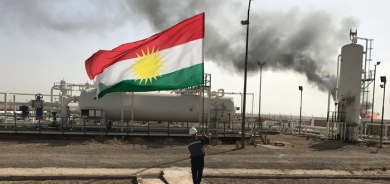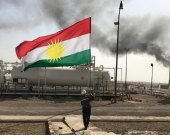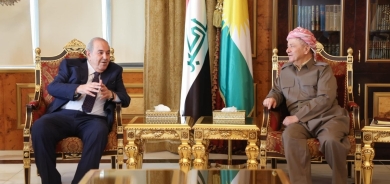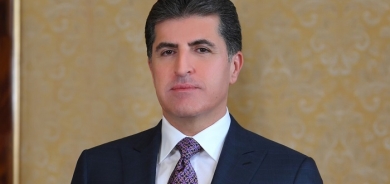US commission calls for long-awaited solution to Iraq's disputed territories

The US Commission on International Religious Freedom (USCIRF), in its annual report on Wednesday, called on Washington to “use diplomatic and other available channels to encourage” Baghdad and Erbil “to resolve the disputed areas per article 140 of the Iraqi Constitution while including all religious and ethnic minorities in the process and comprehensively implement the Sinjar (Shingal) Security Agreement with full inclusion of the Yazidi (Ezidi) community in particular.”
Article 140 was introduced into the Iraqi constitution to allow its 2005 ratification by kicking controversial decisions on the disputed territories down the road, but well over a decade has passed since the 2007 deadline for the article's implementation.
Earlier this week, Kurdistan Region Prime Minister Masrour Barzani called for “a more effective role of the United Nations special envoy in Iraq especially in the implementation of Article 140 of the constitution and the problem of oil and the budget.”
In October 2020, Iraq and the KRG announced that they had reached an agreement, with support from the UN, to restore and “normalize” the security situation in one such disputed territories, the Ezidi-majority district of Shingal in part by expelling competing armed groups that remain active there some seven months later.
USCIRF Commissioner Nadine Maenza told Kurdistan 24 on Wednesday that, although she and her colleagues on the commission “supported the agreement, we were disappointed that Sinjar residents, and especially the Yazidi community, were not included in the negotiations nor in future plans to implement the agreement.”
Other Western governments have weighed in on both the Shingal agreement and other disputed territories, such as British Ambassador to Iraq Stephen Hickey who called Article 140’s implementation “extremely important” in an April interview with Kurdistan 24, adding, “For the existence of proper security and proper services in Sinjar, the armed groups must withdraw for the Iraqi security forces to play their role in and around Sinjar, providing security,” and “We believe that implementing Article 140 of the Iraqi constitution is extremely important.”
The US commission also called on the Iraqi government, “as part of high-priority bilateral relations, to implement its own stated policy to rein in Iran-backed militias of the Popular Mobilization Forces (PMF) that operate in the nation’s provinces located outside the Kurdistan Region, “particularly those factions that continue to engage in sectarian violence; present specific obstacles to the return and rehabilitation of Yazidis, Christians, Sunni Arab Muslims and other religious and ethnic components in northern Iraq; and/or intervene against the protest movement on behalf of Iranian interests.”
The report also recommended “targeted sanctions on additional PMF leaders who direct militia engagement in severe violations of religious freedom by freezing those individuals’ assets and/or barring their entry into the United States under human rights related financial and visa authorities, citing specific religious freedom violations.”
Moreover, it called on the US to “continue to assist Iraqi religious and ethnic minorities to rebuild communities devastated by the Islamic State and to advocate for their own interests, including opening a broad discussion on governance to hold fair and free local and regional elections to select their own representatives.”
In her comments to Kurdistan 24, Maenza characterized the disputed territories as “in between” areas, without the solid control of either the federal or regional governments.
“They include some of the most religiously and ethnically diverse communities in the region including Syriac-Assyrian Christians, Yazidis, Turkmen, Kaka’i, and Shabaks. The weak governance and security in the disputed territories have left these areas vulnerable to ISIS and now to the control of the Iranian-backed militias.”
While she stopped short of endorsing a particular strategy for tackling the issue of the disputed territories, she pointed out that “Article 140 makes it clear it should include a census giving the residents a say in the outcome,” and “Article 119 of the Constitution and Law 13 also give the citizens the option of developing a region, should they choose.”
“If the U.S and international community are serious about creating conditions that would allow Christians, Yazidis, and other religious minorities to return to the Nineveh Plains, Sinjar, and the entire area, we need to be looking for a long-term solution,” she concluded.
“Even though settling the disputed territories might seem too challenging, this may be the only way for lasting peace and security.”
Editing by John J. Catherine















